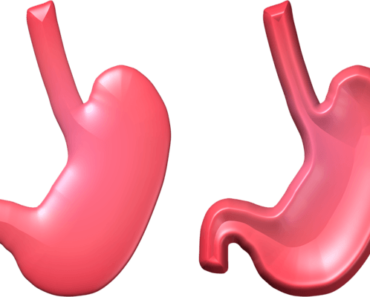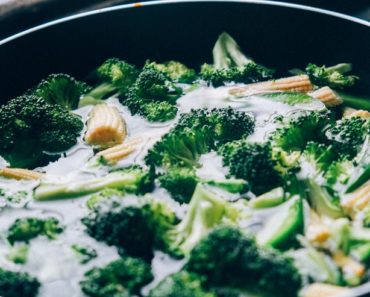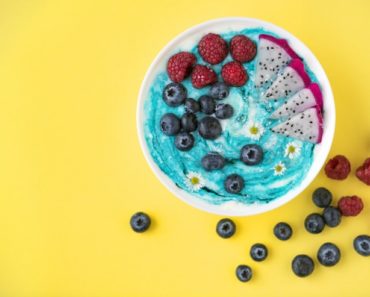
pexels.com
Unhealthy food is unhealthy at any age, but after we turn 30 our bodies become progressively less able to tolerate junk food. You may have already noticed that certain foods trouble you more than they used to. Or perhaps you are looking at the big 3-0 as a turning point after which you shouldn’t be as reckless with your health.
It’s smart to be thinking about this now. As you approach middle age, your risk of developing certain diseases also increases. Diet plays a huge part in the prevention of cancer, diabetes, and heart disease, so eliminating some of the bad stuff ASAP greatly increases your odds of staying healthy. Following are 8 foods you should never eat after turning 30.
We often keep yogurt in the fridge as a healthy choice, but unfortunately the flavored varieties have a boatload of sugar in every serving – as much as 47 grams of it! That’s more added sugar than anyone should have in a whole day. The American Heart Association puts the guidelines at 38 grams/day for men and 25 grams/day for women.
Instead, buy plain or Greek yogurt and mix in fresh or dried fruit at home. Yogurt is great for your digestive health and by adding your own extras you’ll actually get the nutritional benefit of the fruit. Most flavored yogurts are way more artificial flavoring than real produce.

pexels.com
2. Soy
Here is another ingredient that is supposed to be healthy but in reality is no better than the meat you are trying to replace. For starters, soy is highly genetically modified, and we just don’t know the long term effects of that. In the short term, soy may spike inflammation in your body and potentially interfere with thyroid function.
Another problem with soy has to do with its phytoestrogen, which mimics estrogen in the body. For that reason soy should especially not be given to children who are still growing. But honestly, it’s better off avoided by everyone. There are plenty of tasty veggie-based meat alternatives if you’re looking to cut back on animal protein.
Here’s one you probably never thought about. If you habitually use a straw with your beverages, you will start to develop lines and wrinkles around your mouth due to the pursing motion required to suck up fluid. After the age of 25, the collagen in our skin starts to break down, and this is when repetitive actions are likely to causing wrinkling.
Nothing will stop those wrinkles from occurring eventually, but do you really want to develop them in your 30s? Using a straw all the time will make you look older than you are, not to mention the fact that plastic versions pose a serious threat to the environment.
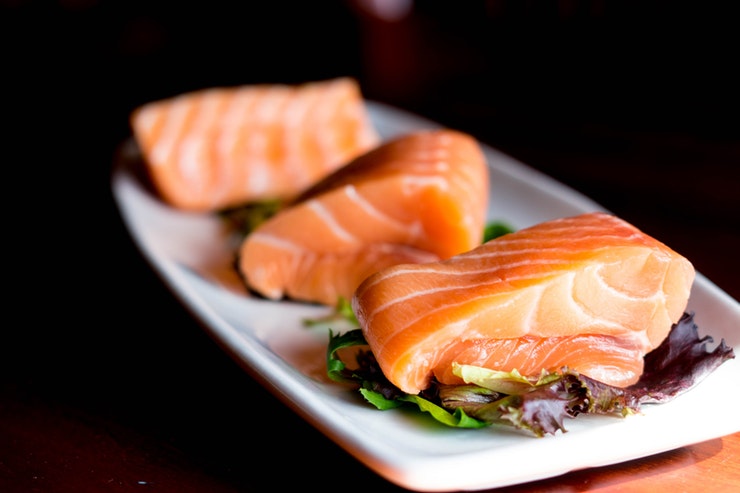
Unfortunately, up to 70% of the fish you’ll find at your local market is farmed fish. But you really want to avoid it because farmed fish are so overcrowded that they eat each other’s feces. They are fed a diet full of antibiotics to compensate, as well as food dyed specifically to tint the meat in a way that makes it look healthy.
If you have one in your town, the fresh fish market is always a better call for good seafood. The fishmonger should be happy to talk to you about the origin of the fish and how recently they were caught.
Maybe when you were a kid, white bread was the only kind you’d eat. But you’re a grown-up now, and white bread is essentially nutritionally void. The bleached white flour spikes your blood sugar and features almost none of the vitamins and minerals present in whole wheat. White bread also has less fiber than whole wheat, and trust us – you need more fiber as you age to keep your digestive system chugging along.
And while we’re at it, bagels pose the same problem – no nutrients or fiber – but also have a ton of sodium. Even if you go with a whole wheat bagel, you’re likely to take in 565 mg of sodium, more than a quarter of your daily allowance.
6. Fruit juice
As a child, you probably had a juice box tossed into your lunch each day and called it fruit. But even as an adult you may fall into the trap of thinking that juice is as healthy as fruit. It’s not. When juice is extracted from fruit, all the beneficial fiber is left behind. Fiber helps moderate the rate at which sugar is dumped into your bloodstream, so pure juice is going to hit you all at once.
Most commercial juices have added sugar, way beyond what is present in the fruit itself. They are also often pasteurized, which means that any heat-sensitive nutrients are destroyed before the product even hits store shelves.
Do you have any special memories of baked goods that were lovingly prepared at home by your parents or grandparents? Home baked goodies are so much better than store bought because you can enjoy them fresh from the oven, without that slight chemical aftertaste of preservatives.
It’s not that homemade goodies are super healthy, but commercially produced baked goods rely on hydrogenated oils to keep their products looking fresh for weeks. They don’t even have to list these harmful trans fats on the label unless they comprise more than 0.5% of the product. At least at home, you can control the ingredients and are likely to use way less sugar and butter. Plus, the memories.
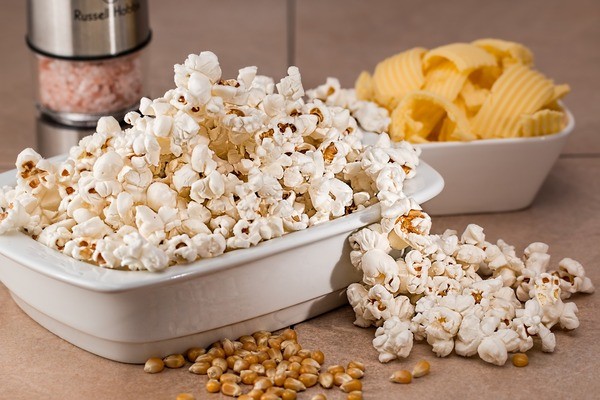
As we age, we naturally start to think more about how to protect ourselves from cognitive decline. Keeping your brain active by continuing to learn new things and challenging yourself with games and puzzles is a great start. But diet also plays a part. One particularly damaging food for your brain is microwave popcorn.
The fake butter that coats those kernels is full of trans fats, which negatively affect memory. They literally destroy cells and increase inflammation in the brain. In turn, the body’s production of brain-supporting omega-3 fatty acids is compromised. One particular ingredient in this “butter”, diacetyl, is a known carcinogen. The plastic-like coating inside the bag, used to keep the fake butter from seeping through, has also been linked to cancer.
This list represents a mere fraction of the poor food choices available on the market today. Major food manufacturers cut huge corners to produce food cheaply, and they add a ton of sugar, salt, and fat to keep you coming back. Though it takes a bit longer to buy only whole foods and make everything from scratch, think of it as adding more time to the end of your life. After detoxing from child-friendly convenience foods, we bet you’ll even start to enjoy the taste of home cooking more.


